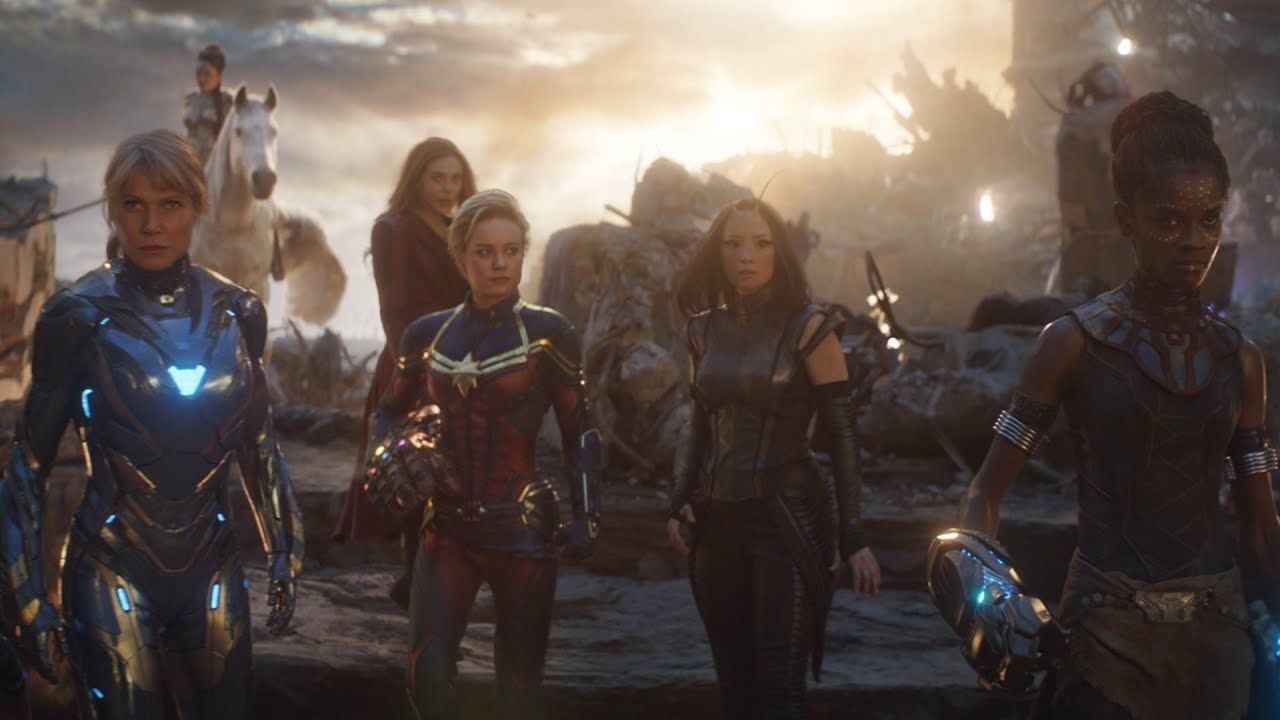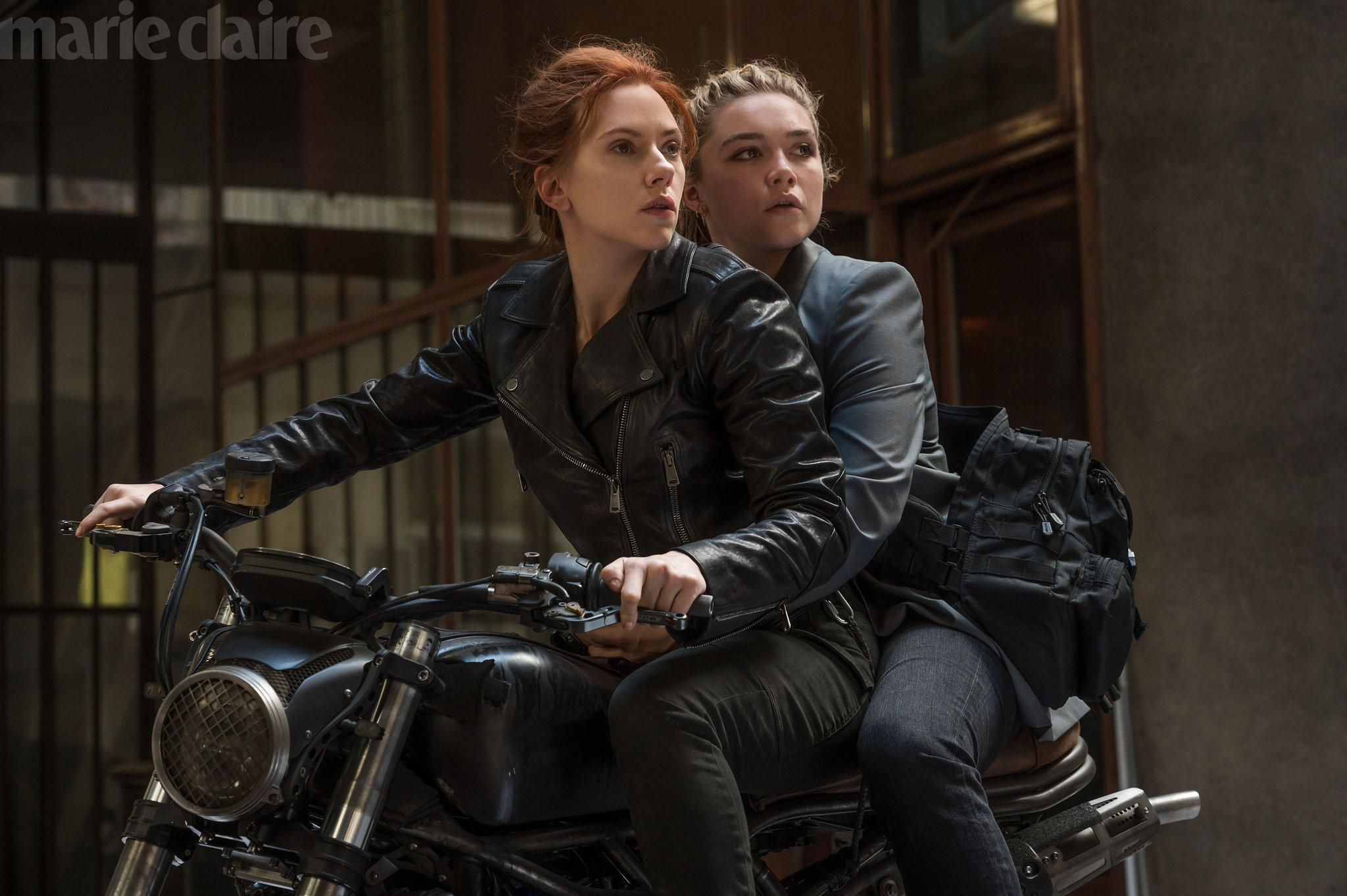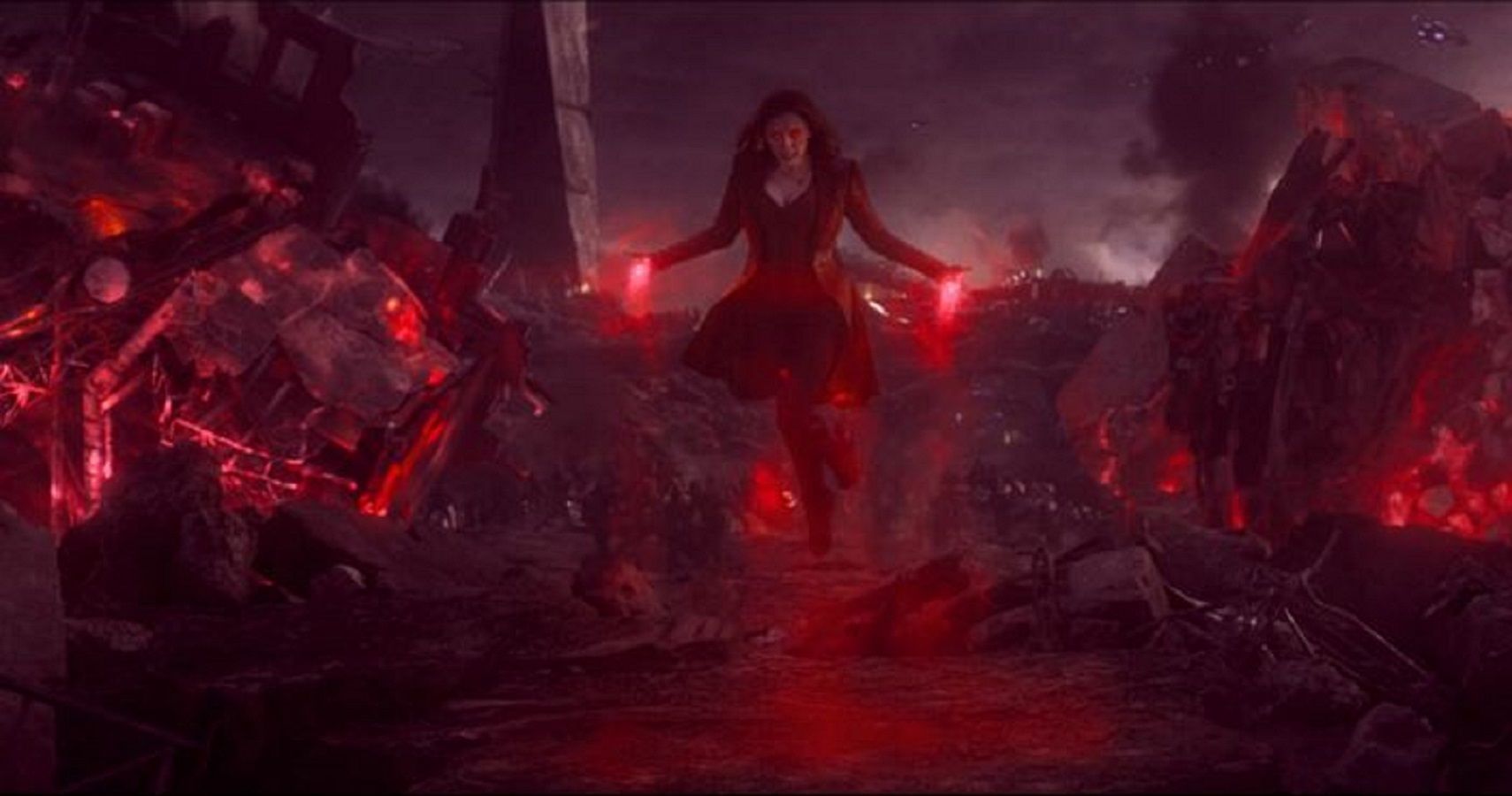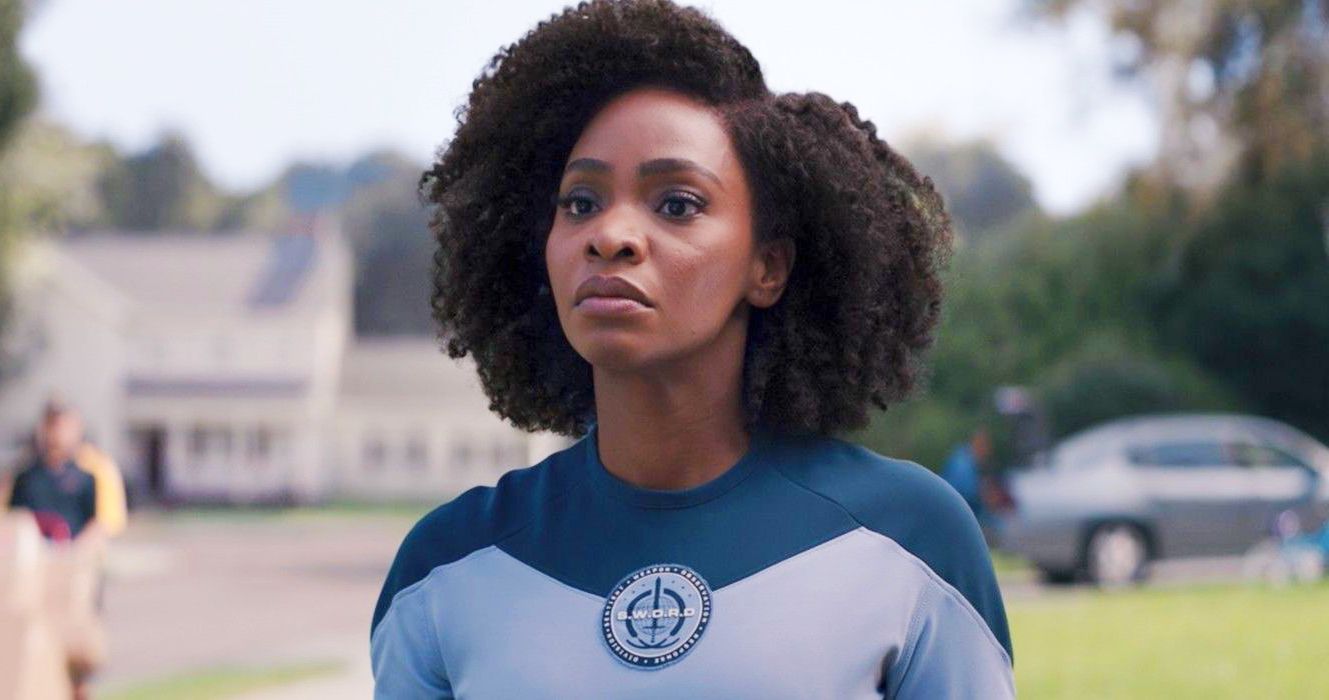Women have always been a necessary part of pop culture and entertainment media, regardless of the form that it takes. Their inclusion goes beyond the illusion of gender diversity but instead argues that gender does not define the capabilities or success in media. The comic book market has been attempting to overcome the objectified stereotypes that women characters have been written into and undo its internalized sexism. There has been a notable absence of feminine comics being included for the sake of femininity alone. These notable women in comics may embrace their femininity while escaping its limitations. Niche forms of entertainment media have provided spaces for fans to celebrate their favorite forms of pop culture, and the popularity of female superheroes trending have encouraged them to become more appreciated.
Marvel Comics may still subscribe to some stereotypical portrayals of women in their comics, but they have made an effort to slowly unlearn the habits that they have become comfortable with over the early decades of publishing. Just as their publication team has been questioned over the objectification of women throughout their prestigious pages, Marvel Studios is backpedaling on their underutilization of women characters as the cinematic giant’s brand ebbs away from the male-dominated Infinity War Saga. The Infinity War Saga was composed of 23 films that overarched multiple phases, but only two were dedicated to women leads. There are women-led projects in development, such as Olivia Wilde's Spider-Woman movie and the upcoming Captain Marvel sequel, though the question still stands: Why did it take so long for a woman-led Marvel Cinematic Universe movie to happen?
Why Did Marvel Take So Long to Make a Woman-Led Superhero Movie?
For a long time, Marvel Studios seemingly felt little urgency to produce women-led superhero movies that would connect to the ever-expanding Marvel Cinematic Universe. Women have been present throughout the expedited growth of Marvel films and the rapid rate they consumed the box office, though the studios prioritized that other stories were to be told before acknowledging the demand for a women-led superhero film. Women, of course, weren't erased from Marvel Studios altogether. Rather, they were displaced onto other projects or series where they could support and supplement the omnipotence of the Infinity Saga from afar. Marvel women found themselves leading adjunct television shows and miniseries before earning films of their own. Agent Carter and Jessica Jones paved the way for Marvel-centric programming dedicated to women's storytelling, though Agents of SHIELD highlighted the importance of including powerful women outside the Avengers. Marvel Studios didn't exactly overlook the importance of women in their wealth of cinematic and televised media, though continued to look past the opportunity to canonize full-length feature films about them until the outcry for them drowned out the excuses made in defense of their decision otherwise.
Did Marvel Studios Think Women Couldn't Lead Solo Films?
Suspicions around Marvel Studio's doubt in women-led solo films were proved to be true after an email exchange in 2015 exposed Marvel Entertainment CEO Ike Perlmutter's true attitudes towards the success of women in comic book media. His comments were uprooted following the announcement of Captain Marvel, which would later screen in 2019, and expressed his skepticism over how the film would play out over box office revenue. His email was sent to Sony executive Michael Lynton and exclusively detailed the failure of past women-led superhero movies. The context of the message still remains to be undisclosed as Marvel Studios declined to comment on the situation. The email reads:
"Michael,As we discussed on the phone, below are just a few examples. There are more.Thanks,Ike."
Perlmutter then provides Lyton with a list of women-led superhero films, their allegedly lackluster box office results, and additional comments made about each title. In the email, Perlmutter shares examples of both Marvel and DC Comics properties that were not received as well as they were anticipated to be. He finds himself repeating "most important female," and "disaster" throughout his message to the Sony executive, though fails to elaborate as to why besides a monetary perspective.
"1. Electra (Marvel) – Very bad idea and the end result was very, very bad. 2. Catwoman (WB/DC) – Catwoman was one of the most important female character within the Batmanfranchise. This film was a disaster. 3. Supergirl – (DC) Supergirl was one of the most important female super hero in Superman franchise. This Movie came out in 1984 and did $14 million total domestic with opening weekend of $5.5 million. Again, another disaster.Best,Ike."
The leaked conversation resulted in Marvel Studios being accused of sexist behavior by its creative teams. In 2014, Marvel Studios president Kevin Feige was questioned over his decision to not green-light a woman-led MCU movie after a reporter for Comic Book Resources pressed him on his declination to take action. "I think it comes down to timing, which is what I’ve sort of always said, and it comes down to us being able to tell the right story," Feige said, "I very much believe in doing it. I very much believe that it’s unfair to say, 'People don’t want to see movies with female heroes,' then list five movies that were not very good, therefore, people didn’t go to the movies because they weren’t good movies, versus [because] they were female leads. And they don’t mention Hunger Games, Frozen, Divergent. You can go back to Kill Bill or Aliens. These are all female-led movies. It can certainly be done."
He then expressed his hopes that Marvel Studios would consider releasing a women-led film before admitting that the high volume of individual franchises would have to be sidetracked in order for a women-led project to enter development. The studio fears that men will refuse to see films that star women and that women-led films will drive away a majority of the fanbase. Masculinity has dominated pop culture and entertainment media fan spaces though it should not dictate the risk-taking that should be done by blockbuster studios. Surprisingly, these fears are only projected on films. Marvel has created women-focused and -led content for television and print without notable hesitation, which can imply that the "safety net" of guaranteed revenue permits for more diversity in new releases.
There Are Only 2 Women-Led, Solo MCU Movies — Are There More Planned?
Captain Marvel was the first woman-led solo film in the Marvel Cinematic Universe and its 2019 release was considered to be divisive among fans. The criticism arose from concerns around cinematic quality to the distaste of the character herself. Captain Marvel reignited the debate about the merit of women-led superhero films and their place in the MCU moving forward. Black Widow was the second woman-led cinematic feature that hit big screens, though its 2021 release date was viewed as a move of appeasement to fans who pleaded for the original Avenger's solo film to reach broader audiences. The discussion around the quality of the film itself compared to Marvel's eventual caving to the excess of unrelenting fans' requests.
Despite the uncensored pushback from (male) Marvel fans who were not in favor of Captain Marvel or Black Widow, Marvel Studios plans to proceed with its women-led films and television series in Phase 4. Captain Marvel warranted a sequel, The Marvels, that will heavily prioritize a women-dominant cast. The upcoming wave of Marvel-inspired media has been shifting its focus towards women-led branding, though that transition has been more through its Disney+ series. Thor: Love and Thunder teases that Natalie Portman is claiming the leading role as Mighty Thor, though it still belongs to Chris Hemsworth at the moment. The gradual turning point from male-led comic book media to women-led leaves more opportunities for new MCU movies to put women in the foreground. Black Panther: Wakanda Forever could jump on the opportunity to set the Dora Milaje as the film's main protagonists while dually operating as a bridge into the Ironheart and Black Panther spinoff series on Disney+.
The Marvels is the only currently slated upcoming woman-led film at the moment, but that doesn't mean that plans are subject to change when Phase 4 must pass the torch on to Phase 5. In fact, Elizabeth Olsen recently extended her Marvel contract, prompting rumors of a solo Scarlet Witch movie in the future. Indeed, more women characters are being established with higher prominence as the MCU explores its new chapter, and their stories are beyond one-dimensional. The high volume of women characters making overlapping appearances through televised and cinematic releases means that more women-led films are absolutely in Marvel Studios' future, even if they haven't been announced quite yet.




